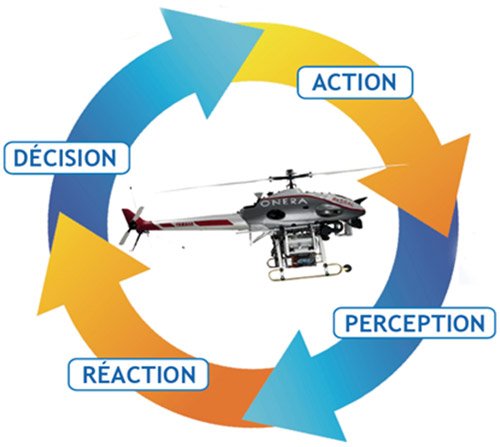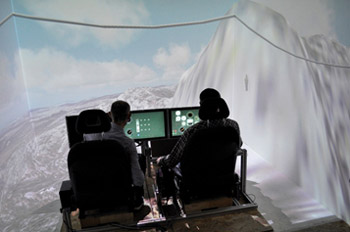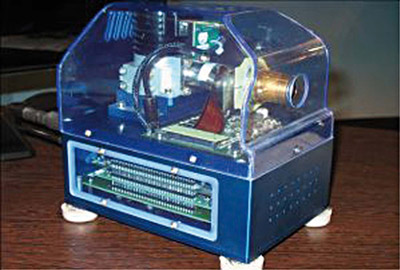UAV Show 2018 : ONERA presents its drone offer
For 25 years ONERA has been working on the issue of aerial robotics! Its experience provides it with expertise in most of the important scientific topics related to drones. It benefits from multi-disciplinary simulation capabilities and significant experimental resources. From 10 to 12 October, it will participate in the UAV SHOW, the first European professional drone show, which will be opened by ONERA's President Bruno Sainjon in person.
Drones cover a very wide spectrum of applications, both civil and military, flying close to the ground, in the stratosphere and even in the Martian atmosphere. The development of new generations of drones or new capabilities involves a high-technology sector that builds on multidisciplinary research conducted at ONERA.
Its simulation resources are considerable: it has a site dedicated to drone flights and experiments in the Toulouse region as well as a drone airbase at its site in Palaiseau.
This activity is also carried out as part of contractual or collaborative research projects at regional, national and European levels.
 Vidéo - Bruno Sainjon, président de l'ONERA, ouvre le premier salon du drone professionnel et présente l'offre drone du centre national de recherche aérospatiale |
Scientific themes
Research into drones aims to develop safer and more efficient drones, but also to protect against malicious drones, in particular to ensure the protection of sensitive sites.
The first aspect, the security of drones, involves making avionics more reliable, in order to enable the aircraft to reconfigure itself in the face of hazards: to do this, ONERA is working on multiple themes such as human factors or the definition of data link systems.
A safer drone actually means a more efficient drone: to improve performance, ONERA is developing innovative design tools such as more compact sensors, which make navigation more reliable, and thus make it possible to carry out complex missions using miniaturized payloads. Objective: to improve mobility and decision-making autonomy.
In addition to the "machine design" aspect, ONERA is working on the integration of drones into air traffic and in particular on the development of tools for certification. The ethical dimension is also taken into account.
Optical measurement camera for drones: cryogenic infrared cameras with integrated optics 640 x 512 pixels - Ground level: 25 cm to 150 m high
A range of missions
In all these areas, ONERA is developing scientific excellence that enables it to fulfil its dual mission of expertise on behalf of the French State and the production of innovations that benefit the aerospace industry.
The role of state expert is reflected in the recent PHYDIAS convention on drones, established with the French civil aviation authority (Délégation Générale de l'Aviation Civile - DGAC): also in line with this "dual technology/regulation" principle, ONERA provides scientific support for future regulatory developments and technical challenges. It also provides assistance in training the sector to better promote safety objectives and methods.
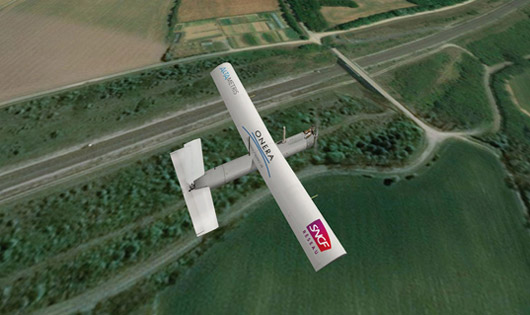 In the defence sector, ONERA is providing expertise for the major French and European programmes relating to drones, in particular the combat drone and the future European MALE (Medium Altitude Long Endurance) programmes.
In the defence sector, ONERA is providing expertise for the major French and European programmes relating to drones, in particular the combat drone and the future European MALE (Medium Altitude Long Endurance) programmes.
In terms of cooperation with industry, this is illustrated, for example, among other projects, by the strategic partnership with the French rail network SNCF / Altametris which aims to improve the inspection and monitoring capabilities of the rail network.
ONERA is also involved with manufacturers and other industry stakeholders in the Council for Civilian Drones (Conseil pour les Drones Civils) led by the DGAC, contributing to most of the scientific activities which it carries out. It is also active in the Aerospace Valley (drones marketing commission), Astech and Safe clusters.
At the international level, ONERA represents European civil aviation research institutions in the European Commission's group of drone experts, and its application to NLR, the Dutch aerospace research organisation, has been selected for a similar role with the European Aviation Safety Agency (EASA). ONERA is also involved in the international JARUS group and in EUROCAE, which are working on future European aviation standards.
Its close relationship with research laboratories is reflected in the recent research federation created with ISAE-Supaéro and ENAC, as well as in the scientific interest group on drones, which brings together a number of players in this field.
Henry De Plinval Salgues
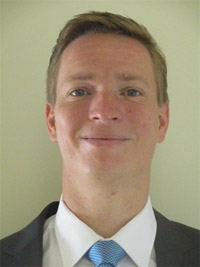 « To meet the current challenges of the drone industry, ONERA has adopted a global approach. It has the capacity to do this thanks to its multidisciplinary nature and its expertise in "drone systems". ONERA has unique skills in sensor development and associated processing and in on-board intelligence.
« To meet the current challenges of the drone industry, ONERA has adopted a global approach. It has the capacity to do this thanks to its multidisciplinary nature and its expertise in "drone systems". ONERA has unique skills in sensor development and associated processing and in on-board intelligence.
This research currently brings together around a hundred ONERA researchers on more than 60 French, European and international projects. »
